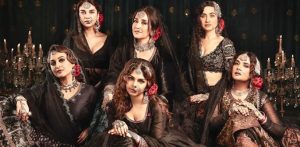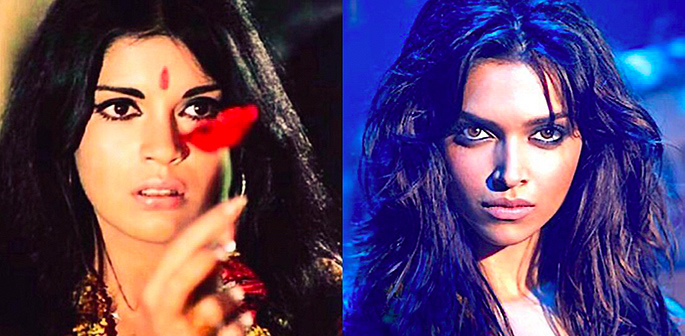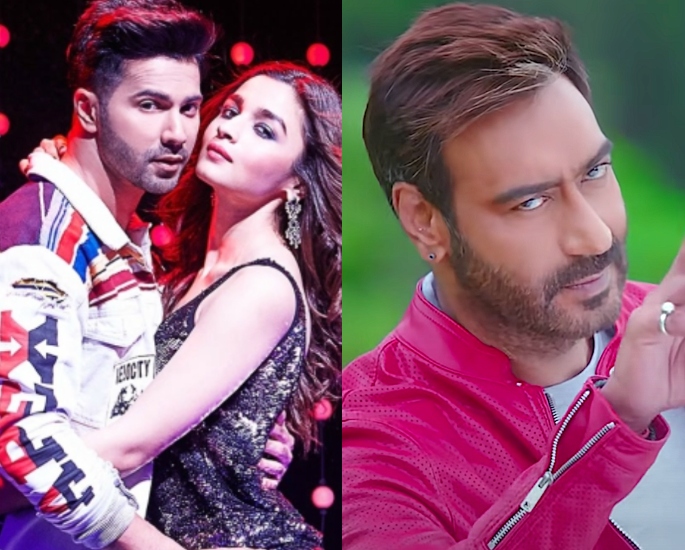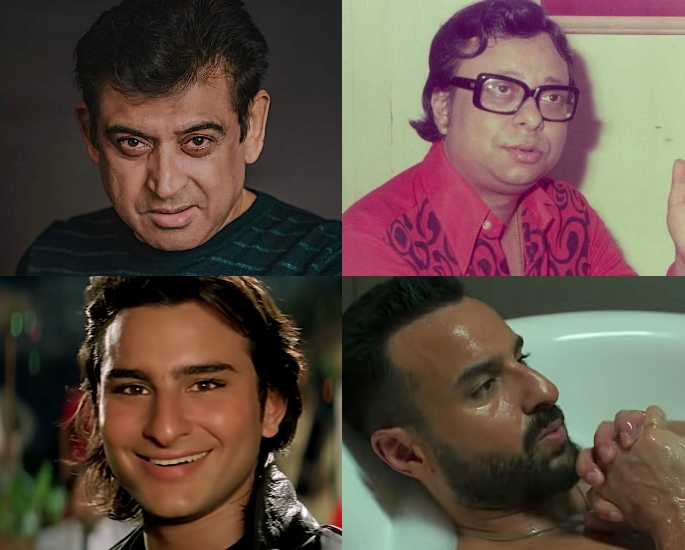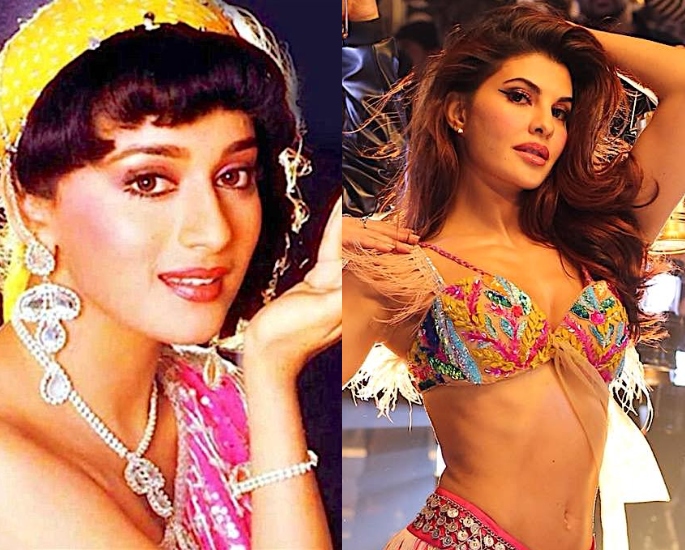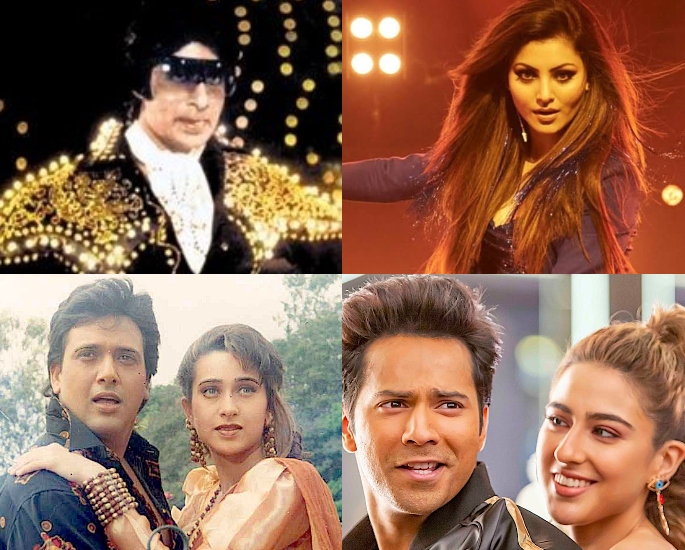"To reinvent is not something I’d have liked to do"
Bollywood music adorns the Indian film industry like bridal dresses at weddings and many Indian movies would not be the same without their enticing songs.
For the past several decades, countless artists have ingrained their position in Bollywood music.
Many people call the 50s and 60s the ‘Golden Age’ of Indian cinema where the tracks of Lata Mangeshkar, Mohammad Rafi, and Mukesh ruled.
Whereas Bollywood heavyweight Kishore Kumar dominated the 70s and 80s, with his monumental renditions.
In addition, respected singers like Udit Narayan, Alka Yagnik, and Sonu Nigam came to prominence in the 90s and 2000s to stamp their mark on Bollywood.
These singers have created some evergreen tracks. However, the majority of this Gen Z generation has little appreciation for this classic art form.
Many filmmakers are now recreating and remixing such songs. Although, some audiences and industry experts have criticised this move. Others laud it, saying it’s good to give youngsters the key to old tracks.
DESIblitz analyses whether remixes keep classic Bollywood songs alive or whether they ruin their sanctity.
What are Bollywood Remixes?
A remix is a recreation of an older track. These versions often showcase the song at a faster tempo and the lyrics tend to be in a form of rap or hip-hop.
In Indian cinema, the melody is a big part of classic Bollywood music. In older songs, there is less orchestration and slower beats.
However, remixes are louder and they conform to the preferences of newer generations. These can include the implementation of English lyrics and fresh-faced energetic performers.
Picturisation is also key in Bollywood remixes. They often present younger actors grooving to the song, with starkly different choreography.
It is also important to note the distinction between remixes and parodies. For example, the ‘Parody Song‘ in Mr India (1987) picturises Seema Sohni (Sridevi) and Arun Verma (Anil Kapoor).
They belt out classic numbers such as ‘Dafliwale Dafli Baja’ from Sargam (1979) and ‘Om Shanti Om’ from Karz (1980). However, the lyrics are different and they cater to the situation in Mr India.
The beat, tune, and tempo remain the same, which is not the case in remixes. People remake a song in the form of a remix to display it differently.
Such songs include ‘Tamma Tamma Again‘ from Badrinath Ki Dulhania (2017) and ‘Maine Tujhko Dekha‘ from Golmaal Again (2017).
The intention is to put their own stamp on the track, catering the song to the audience of that time.
Industry Opposition
The playback singer, Amit Kumar is the older son of Indian singing legend Kishore Kumar. In an interview, Amit is asked about his opinion on remixes.
He responds negatively:
“Very bad – awful. I never liked remixes.”
Amit Da also goes on to explain how music composer RD Burman foretold the future of Bollywood music regarding remixes:
“[Burman] said that one day the music he makes will become old. Then, the modern audience will want to represent it in a different way to keep it alive.”
The recollections of Amit Ji show how remixes are important for the longevity of vintage songs. However, at the same time, his negative thoughts depict how some people dislike remixes.
A remix of Saif Ali Khan’s song ‘Ole Ole’ from Yeh Dillagi (1994) exists in his film, Jawaani Jaaneman (2020).
The recreation is picturised on Saif as Jaswinder ‘Jazz’ Singh. He parties in nightclubs, soaks himself in bubble baths and enjoys one-night-stands.
In an interview with Hindustan Times, Saif is asked whether he likes the remix of his popular classic. He is not overly enthusiastic about it:
“I feel ‘Ole Ole’ was probably best left where it is. It’s a great song for a time that has gone.”
“To reinvent is not something I’d have liked to do.”
Remixes are therefore marketable but not many like the idea of revamping existing material within Bollywood music.
Remixes Acceptable
Sometimes, remixes can prove to be a hit with fans and the industry. Many applaud the refashioning of classic Bollywood music.
One of the most successful films starring Madhuri Dixit is Tezaab (1988). A pivotal reason for the film attaining cult status is the powerful number ‘Ek Do Teen.’
The energetic track focuses on Mohini (Madhuri Dixit) entertaining an audience while busting out an excellent dance.
Thirty years later, the classic song was remixed and it appears in the film Baaghi 2 (2018). The new version showcases Mohini (Jacqueline Fernandez) in an item number.
Interestingly Madhuri loves the remix of her definitive song and she appreciates the inspiration it gives to younger stars:
“It’s wonderful to see it being remade and why, because they are inspired by the song.”
She also sees nostalgia shining in the remix:
“As youngsters, they are trying to do something they are nostalgic about and are trying to recreate that on the screen in their way.”
Madhuri’s reaction shows that not all experienced stars take offence by remixes of Bollywood music. Although, it’s not just the stars that share this take either.
Kuldip, a retail worker from Birmingham, UK, divulges into remixes. She thinks they possess a good attraction element:
“It might be a good thing as it will attract younger generations.
“Remixing is a new thing now. It is good for clubbing and concerts and so forth.”
Clubbing and large concerts did exist before, but their prominence in world culture is always growing.
In 2021 India, whenever classic music plays, it is often not the original version. Instead, the remixes reverberate through the room.
With all these opinions and facts circling, perhaps one cannot deny the attraction that remixes bring to classic Bollywood music.
Critical Views
Kaabil (2017)
While some fans positively incline towards remakes of classic Bollywood music, what do film critics think?
In Kaabil, Hrithik Roshan and Yami Gautam appear as blind characters. The film follows a unique premise, but the originality of the music can be questioned.
Kaabil features remixes of Kishore Kumar classics from Yaraana (1981) and Julie (1975). Rajesh Roshan composes music for all of the movies.
The remixes are of ‘Saara Zamaana,’ from Yaraana and ‘Kisi Se Pyaar Ho Jaaye’ from Julie.
‘Saara Zamaana‘ from Kaabil presents Urvashi Rautela dancing in a club.
She wears revealing clothing and is basically there for male entertainment. The choreography is also erotic, in that certain poses are clearly designed to entice men.
This is in complete contrast to the original version from Yaraana. In that song, Kishan (Amitabh Bachchan) and Komal (Neetu Singh) wear smart outfits and dance majestically.
‘Kisi Se Pyaar Ho Jaaye‘ from Kaabil picturises on Supriya ‘Su’ Bhatnagar (Yami Gautam) and Rohan Bhatnagar (Hrithik Roshan) swooning.
Ahana Bhattacharya, from Koimoi, delves into the effect of comparisons between the Kishore Kumar originals to the remixes:
“If you don’t compare it to the original Kishore Kumar classic, you will love the song.”
Ahana’s intuition displays that classic music will always preside over remixes. However, remakes are good for the attraction of the developing market.
Coolie No 1 (2020)
In 2020, David Dhawan remade his 1995 blockbuster of the same name. The remake contains the remix of the chart-topping song ‘Main Toh Raste Se.’
The 1995 rendition showcases Raju Coolie/Kunwar Mahendra Pratap Singh Mehta (Govinda) and Malti Choudhry (Karisma Kapoor) dancing on the streets.
Raju wears a smart black shirt and jeans, while Malti dons a sparkling amber sari.
The 2020 remix shows Raju Coolie (Varun Dhawan) and Sarah Pratap Singh (Sara Ali Khan) similarly dancing on the roads.
The beat is quicker and the remix has been planned to be more of a tribute to the original evergreen track.
However, Ronak Kotecha, from Times of India is not keen on the remix:
“It makes for a good watch, but the song deserved a much better remake.”
Lalit Mehta, on YouTube, reacts far more positively about the retainment of the original singers for the remix:
“The only good thing about the song is that they didn’t change artists Kumar Sanu and Alka Yagnik.”
This proves that this remix was a less successful take on classic Bollywood music. The attraction element is there, but the reception depends on the consumer.
The Future
As more western influences infiltrate Bollywood, will remixes flourish or fail as time continues?
A remix of ‘Jaanu Meri Jaan’ from Shaan (1980) is in Behen Hogi Teri (2017). The new version plays over Shiv ‘Gattu’ Nautiyal (Rajkummar Rao) and Binny Arora (Shruti Haasan).
The original number is rendered by Mohammad Rafi, Asha Bhosle, Kishore Kumar, and Usha Mangeshkar.
Presenting his views about the remix, Joginder Tuteja from Bollywood Hungama opines:
“The results are very good. You do miss the presence of Kishore Kumar and Mohammad Rafi, who had made this song special.”
This advocates that remixes are catchy, but they do not always fulfill justice towards the original songs.
In 2011, Dev Anand criticised the remake of his song ‘Dum Maaro Dum’ from Hare Rama Hare Krishna (1971):
“How can they work on something which is born from my inner creation? I will not allow it.”
However, while the late veteran abhorred the modern take on his work, it was enjoyed by the audience. Atta Khan from Planet Bollywood writes:
“You have a smash party hit in the making.”
Similarly, the remix of ‘Hawa Hawai‘ in Tumhari Sulu (2017) with Vidya Balan (Sulochana ‘Sulu’ Dubey) is a catchy revamp. It seems that remixes of classic songs are not going away.
Remakes and remixes of classic Bollywood music may not appeal to hardcore fans of the original songs. However, they do bring a certain amount of refreshment to the tracks.
In 2021, Kishore Kumar and Asha Bhosle may not resound in nightclubs and parties. On the other hand, the remixes of their songs do.
Perhaps, this can motivate fans to go back and listen to the originals there. In other words, new numbers can be a way to reintroduce the initial tracks.
Remixes may not be a patch on the art they are modelled upon, but one cannot deny that they are attractive to the new audience.
For this very reason, they keep classic Bollywood music alive.













